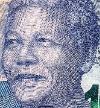The successful listing of Vodacom on the Johannesburg Stock Exchange has been greeted with rage by the South African left. The entire operation was nearly scuppered at the last moment after a challenge in the courts. The Sunday Times splashed the story across its front page on the 17th of May, with the headline: "The R22 Billion Debacle"
"South Africa's reputation as a business-friendly economy is in tatters, thanks to a bid to block a R22.5-billion foreign investment - and the biggest listing on the stock exchange this year. The Independent Communications Authority of SA (Icasa) and trade union federation Cosatu will this morning launch an urgent interdict to stop the listing of Vodacom, scheduled for tomorrow."
The entire issue was extraordinary.
The listing of Vodacom, which some analysts have valued at more than R70bn, was the final part of a plan by fixed-line operator Telkom to get rid of its 50% stake in the country's biggest mobile operator. Under the plan, Vodafone - the UK based multinational - agreed to buy the 15% stake from Telkom, giving it a controlling 65% holding. Telkom will then distribute its remaining 35% to shareholders.
Cosatu, which regards Zuma as a political ally, has long opposed the deal on the grounds that it threatens jobs and cedes control of a major South African company to a foreign firm.
The Independent Communications Authority of South Africa (Icasa), the industry watchdog, said in April the deal did not need its approval but suddenly changed its mind on Friday, under intense pressure from President Zuma's closest allies in Cosatu and the SACP. Cosatu said it opposed the deal on the grounds that it threatens jobs and cedes control of a major South African company to a foreign firm.
The rand fell as much as 3% amid fears it was an early sign of the unions and the left wing of Zuma's ruling ANC managing to sway policy in Africa's biggest economy. Zuma was forced to send government lawyers in to bat on the side of the company.
The judge ruled that Vodacom and the Zuma government were in the right and the listing went ahead. But not before howls of anger from the left. The South African Communist Party said it was outraged, called for a boycott of Vodacom and said:
"It is in the interest of salvaging our state owned enterprises from the capitalist greed that our people must stand in their number and oppose this deal. Gone are the days when narrow transactions would be undertaken in the interest of the parasitic bourgeoisie. We have entered an era where it must be people first."
But tucked away towards the end of the statement came what is probably the real reason for this froth: "We are also more worried as the SACP at the manner in which this deal and the proceeds thereof are seemingly geared to finance COPE."
The problem for the left was that the deal put millions of Rand at the disposal of its political enemies in COPE.
As Business Times pointed out on May 9th, the ANC was a potential beneficiary of the listing, but so too were a number of allies of COPE, including Thabo Mbeki's former spokesman, Smuts Ngonyama.
All were members of the Elephant Consortium, which stood to benefit from its stake in Telecom.
It is this fear that COPE might gain funding, rather than any concern about the poor or foreign ownership that has so angered Cosatu and the Communist Party.
The editor of the Financial Mail put it succinctly:
"There is also little credibility in Cosatu's claims that its aim was to protect its members' jobs. If there was real concern about jobs, Cosatu and government would have been scrambling to facilitate a deal that brings in a large foreign investor. More likely is that the real issue for Cosatu's leaders was ideological, and a test of power in the new government.
The presence of the Elephant Consortium in the middle of this raises further questions. Key individuals in the consortium, such as Smuts Ngonyama, were close to Zuma's predecessor, Thabo Mbeki, but have cut their ties with the ANC and are now backing Cope. The battle over Vodacom's listing, and the possible damage to SA's reputation, underline the dangers in encouraging BEE deals that follow a pattern of enriching individuals close to government or the ANC."
Click here to sign up to receive our free daily headline email newsletter

